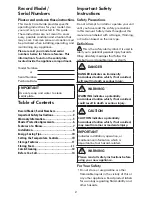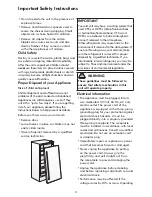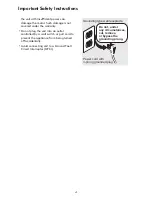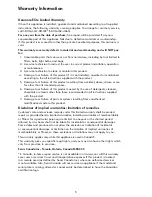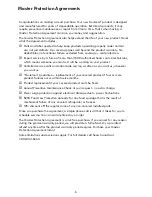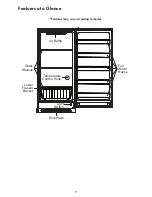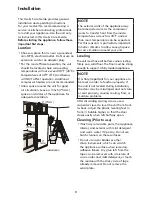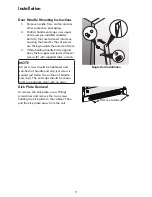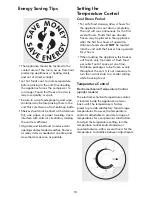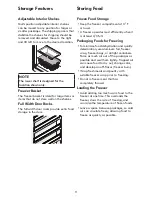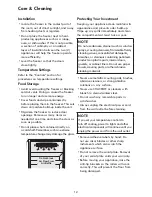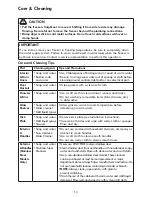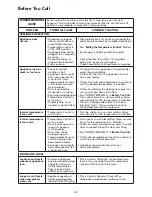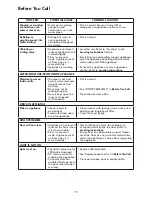
3
Important Safety Instructions
Proper Disposal of your Appliance
Risk of child entrapment
Child entrapment and suffocation are not
problems of the past. Junked or abandoned
appliances are still dangerous – even if they
will sit for “just a few days.” If you are getting
rid of your appliance, please follow the
instructions below to help prevent accidents.
Before you throw away your old unit:
•
Remove door.
•
Leave shelves in place so children may not
easily climb inside.
•
Have refrigerant removed by a qualified
service technician.
•
Do not operate the unit in the presence of
explosive fumes.
•
Remove and discard any spacers used to
secure the shelves during shipping. Small
objects are a choke hazard to children.
•
Remove all staples from the carton.
Staples can cause severe cuts and also
destroy finishes if they come in contact
with other appliances or furniture.
IMPORTANT
Your old unit may have a cooling system that
used CFCs or HCFCs (chlorofluorocarbons
or hydrochlorofluorocarbons). CFCs and
HCFCs are believed to harm stratospheric
ozone if released to the atmosphere.
Other refrigerants may cause harm to the
environment if released to the atmosphere. If
you are throwing away your old unit, make
sure the refrigerant is removed for proper
disposal by a qualified technician. If you
intentionally release refrigerant, you may be
subject to fines and imprisonment under the
provisions of environmental legislation.
Child Safety
Destroy or recycle the carton, plastic bags, and
any exterior wrapping material immediately
after the unit is unpacked. Children should
never
use these items to play. Cartons covered
with rugs, bedspreads, plastic sheets or stretch
wrap may become airtight chambers and can
quickly cause suffocation.
WARNING
These guidelines must be followed to
ensure that safety mechanisms in this
unit will operate properly.
Electrical information
•
The appliance must be plugged into its
own dedicated 115 Volt, 60 Hz., AC only
electric outlet. The power cord of the
appliance is equipped with a three-prong
grounding plug for your protection against
electrical shock hazards. It must be
plugged directly into a properly grounded
three-prong receptacle. The receptacle
must be installed in accordance with local
codes and ordinances. Consult a qualified
electrician. Do not use an extension cord
or adapter plug.
•
Immediately repair or replace any power
cord that becomes frayed or damaged.
•
Never unplug the appliance by pulling
on the power cord. Always grip the
plug firmly, and pull straight out from
the receptacle to prevent damaging the
power cord.
•
Unplug the appliance before cleaning
and before replacing a light bulb to avoid
electrical shock.
•
Performance may be affected if the
voltage varies by 10% or more. Operating


